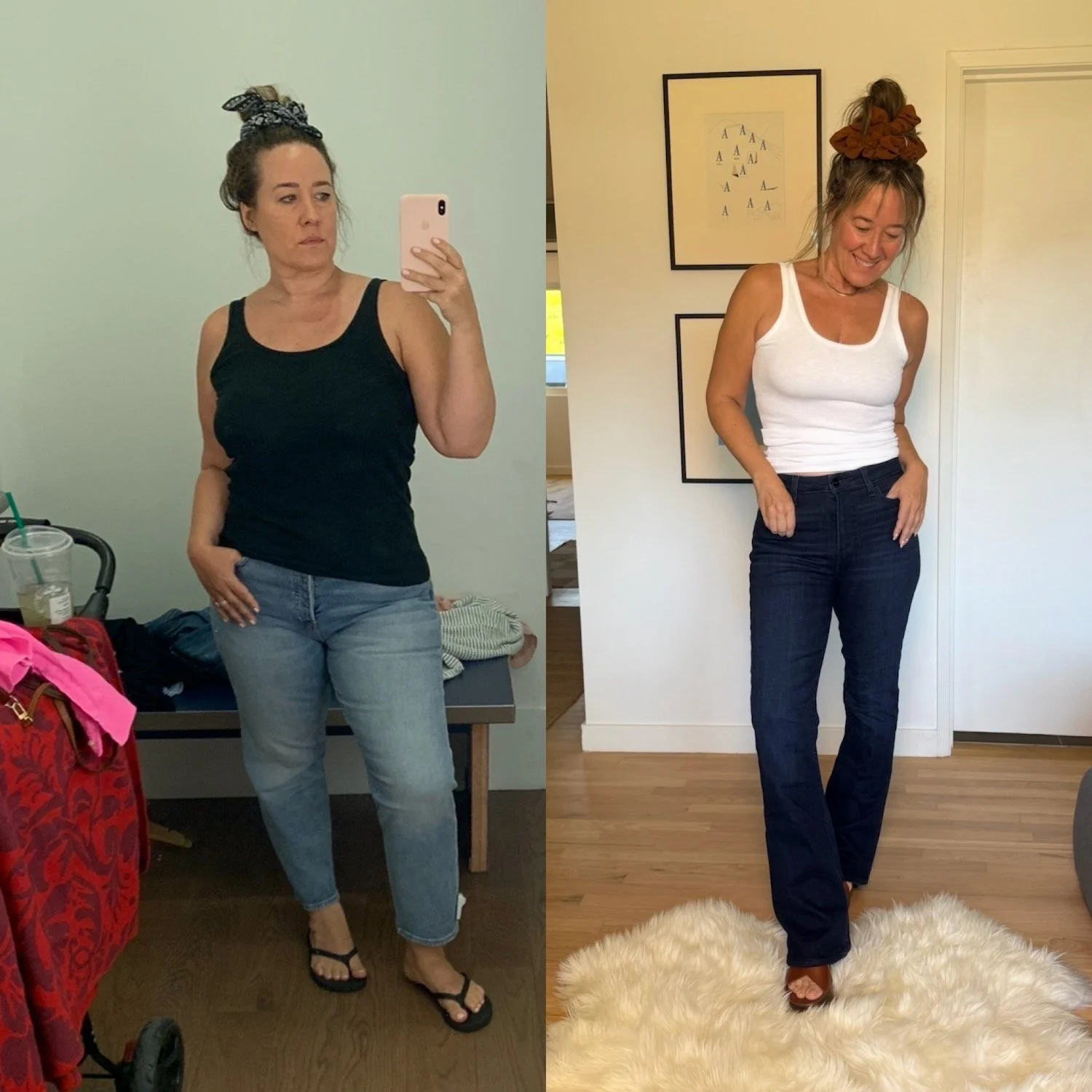This Hormone You Haven’t Heard Of Might Be Why We Crave Garbagey Food And Never Feel Full
Once again, our “will power” isn’t the whole problem.
by The Candidly Team
If you’ve ever stared into the blue light of your refrigerator at 9PM wondering why the f___ am I still hungry, this article is for you.
Or if you generally struggle to feel full. Or constantly crave crappy food, this article is also for you.
Because there could be a reason that you’ve never heard anything about. And it’s not that you’re some undisciplined sloth.
It’s called leptin - a hormone that sits at the helm of all your hunger signals.
And it might have the answers you’re looking for.
To explain the critical role of leptin in influencing how we eat, we called upon Dr. Mary Claire Haver, expert OBGYN and creator of The Galveston Diet. But first, truthfully, we watched her video, telling us exactly why we should care about it in the first place.
Then of course, we asked her everything we immediately wanted to know, including what we can possibly do about it.
1. For those of us with zero clue, what even is leptin? Why don't we ever hear it mentioned?
“Leptin is known as the “I’m full,” or the satiety hormone,” said Haver. It’s produced and stored in our fat cells. When it’s released, it travels through our blood and sends a message to our brain that we’re full, so our appetite can chill, and we can feel satisfied.
2. Why should we, particularly women over 35, add it to our already long list of health-related things we should think about?
“Leptin tells your brain that there’s enough fat in storage and that no more is needed, which helps prevent overeating,” said Haver. Because it’s responsible for letting us know that we’re full, being thrown off in relation to leptin can also throw off our entire conception of when and what to eat.
3. Can you explain what leptin resistance is and how it wreaks havoc on our hunger signals?
“Leptin resistance is a lack of sensitivity to leptin,” said Haver. “The brain can’t recognize leptin signals and thus, it drives cravings, unhealthy eating habits, and weight gain.” This condition is now thought to be one, if not the, leading biological factor contributing to obesity.
If we have leptin resistance, our brain mistakenly thinks our body needs more calories and fat. It pushes us to eat more, while simultaneously lowering our energy levels, so we burn less and store more, according to Healthline. That’s when we start to crave those sweet, greasy, fatty foods that feel like they’ll help, but in fact, do nothing to nourish us.
The huge problem with this is that it’s not a one and done deal, wherein we eat a bunch of things that are bad for us, but then our brain settles down and believes we’re all good. Instead, the very things that are believed to cause leptin resistance in the first place (inflammation, free fatty acids in our blood, and having high leptin already) are exacerbated by gaining weight and eating the inflammatory foods we’re being driven toward. Thus, our brains get the message to do the opposite of what our bodies need.
4. How common is leptin resistance? Are there recognizable signs we can look out for?
“Clear criteria for defining leptin resistance and its diagnostic use have not been established, making it impossible to say just how common leptin resistance is,” said Haver. However, “signs of leptin resistance may include constantly feeling hungry despite adequate food intake and an excess of body fat or obesity.”
The good news, of course, is that knowing this, we can take steps to put a stop to the cycle. And these steps can help us feel healthier and feel more satisfied whether or not we’re sure we’re experiencing leptin resistance.
5. Is there anything we can do about leptin resistance? How do we convince our bodies we're actually full, for example?
“Paying attention to our eating habits is critical for managing leptin, and it’s actually easier than you may think,” said Haver. Because leptin resistance is associated with things like inflammation and lack of sleep, the following actions and nutritional choices may help:
Avoid processed foods as they drive inflammation.
Eat more fiber. It helps control your appetite, satiety, and weight.
Lower your triglycerides. The best way to lower your triglycerides is to reduce your carbohydrate intake.
Focus on eating adequate amounts of protein. This supports weight loss and can lead to improved leptin sensitivity.
Exercise regularly
Improve the quality and duration of sleep
We’re not going to pretend that all of these steps are easy, especially with a brain hard at work to lower our energy levels and make us want to hit the snack aisle of the grocery store. But it is somewhat empowering to know that what might be fueling us toward things like overeating or just eating the wrong foods is part of a broken messaging system. And that building better habits could ultimately fix that system.
This interview has been edited for length and clarity.
This article is for informational purposes only. It is not intended to be used in place of professional advice, medical treatment, or professional care in any way. This article is not intended to be and should not be a substitute for professional care, advice or treatment. Please consult with your physician or healthcare provider before changing any health regimen. This article is not intended to diagnose, treat, or prevent disease of any kind. Read our Terms & Conditions and Privacy Policy.







